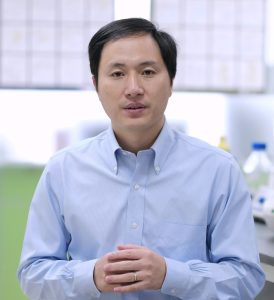10.4 Ethical, Legal, and Social Issues
The use of biotechnology has raised several ethical, legal, and social issues. Here are just a few:
- Are genetically modified foods safe to eat? Might they have harmful effects on the people who consume them?
- Are genetically engineered crops safe for the environment? Might they harm other organisms – or even entire ecosystems?
- Who controls a person’s genetic information? What safeguards ensure that the information is kept private?
- How far should we go to ensure that children are free of mutations?
- Should parents be allowed to select or enhance traits in their children (“designer babies”) with gene editing?
- How can we ensure equitable access to the various biotechnology tools?
- How can we ensure that biotechnological research is conducted ethically and transparently?
- Are there ethical concerns with using biotechnology to enhance human abilities beyond natural limits? What are the limits?
- Is reproductive cloning of humans ever justifiable, and under what circumstances?
- Who decides what extinct species to bring back to life? What are the limits? Should we bring back dinosaurs?
Case Study: The First Gene-Edited Babies

In November 2018, Chinese scientist He Jiankui announced the birth of the world’s first gene-edited babies, twin girls named Lulu and Nana. He used CRISPR-Cas9 technology to edit the embryos’ genomes to confer resistance to HIV by disabling the CCR5 gene, which HIV uses to enter cells.
The news sparked immediate and widespread controversy. Many scientists and ethicists condemned the experiment as premature and unethical, citing concerns about the potential health risks to the children and the broader implications for humanity. Critics argued that the technology was not yet safe for use in humans and that the experiment lacked proper oversight and ethical review. Jiankui was later sentenced to 3 years in prison for violating medical regulations.
Germline Editing
Germline editing involves changing the DNA of reproductive cells (sperm, eggs, or embryos), which means these changes are heritable and can be passed down to future generations. This type of editing can potentially prevent genetic disorders from being inherited, but it also raises significant ethical and safety concerns. The long-term effects on human evolution and genetic diversity are unknown, and there is a risk of unintended consequences.
In the case of Lulu and Nana, the gene editing targeted their embryos, meaning the changes made to the CCR5 gene are present in all their cells, including their germline cells. As a result, these genetic modifications can be passed on to their future offspring, raising questions about the long-term implications for their descendants and the human gene pool.
Ethical Questions to Consider
- Was it ethical for He Jiankui to proceed with gene editing on human embryos?
- Did the parents of Lulu and Nana fully understand the risks and implications of the gene-editing procedure? How can informed consent be ensured in such cases?
- What are the potential long-term health effects on Lulu and Nana, and how should they be monitored and supported throughout their lives?
- What regulatory framework should be in place to oversee gene-editing experiments on humans? How can we ensure that regulations stay ahead of technological advances?
- How can we ensure transparency in gene-editing experiments to prevent secret and unauthorized research?
- How can society prevent the use of gene editing technology for non-therapeutic enhancements, such as selecting for intelligence or physical traits?
- How can we ensure that gene editing technologies are accessible and do not exacerbate existing social inequalities?
- What are the ethical implications of making heritable changes to the human genome? How might this affect future generations?
- How should diverse cultural and religious views be considered in the debate over gene editing?
- Put yourself in this situation. Would you allow gene editing on your own child to protect them from a disease? What about to cure them of a disease? What if the disease was fatal?
“5.16 Genetic Engineering” from Human Biology by Christine Miller is licensed under a Creative Commons Attribution-NonCommercial 4.0 International License, except where otherwise noted.

